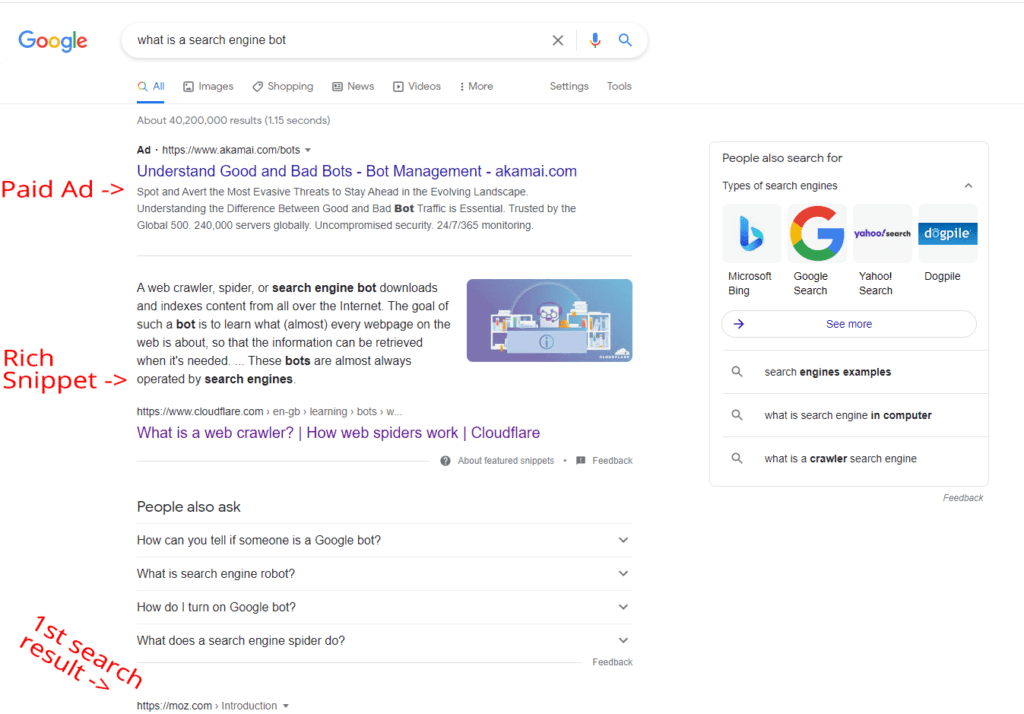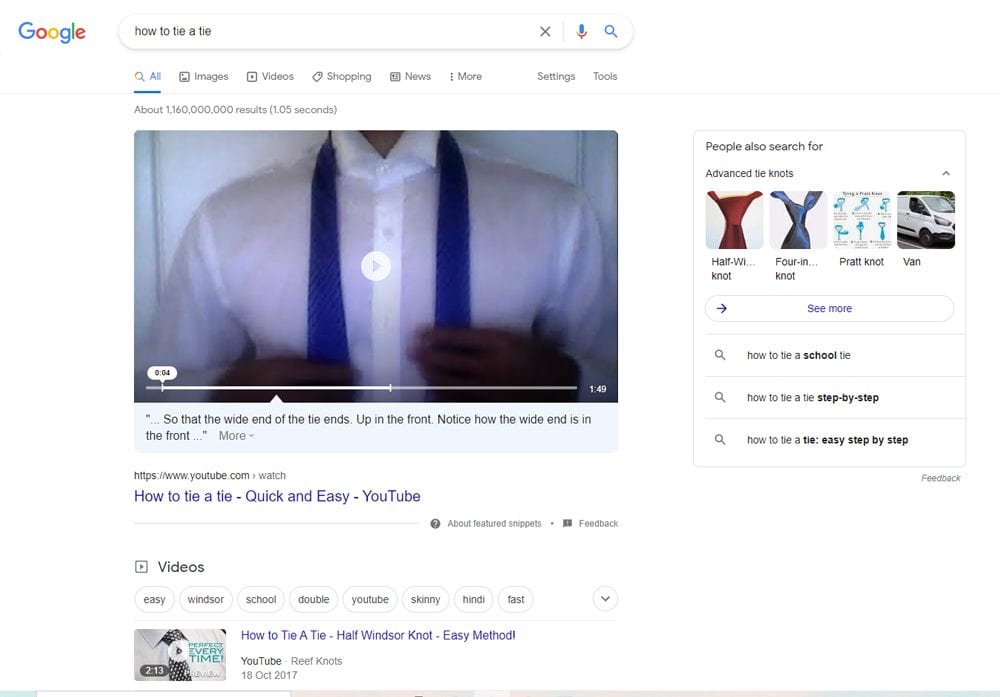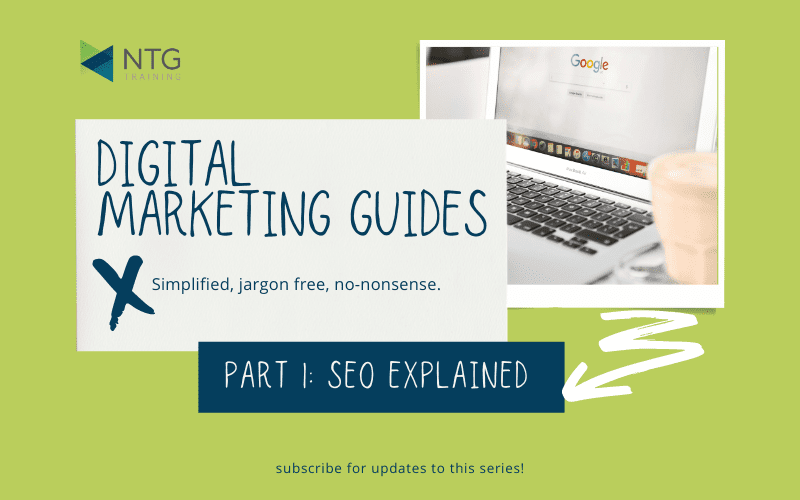I’ve been working in digital marketing for over a decade now, and regardless of that fact, sometimes even I look at the explanations and guides that are out there and think what on earth are you talking about?
Let’s admit it, many industries follow the unfortunate path where they’ll have their experts only appeal to other experts. Sadly that often means the discipline becomes inaccessible to beginners, and therefore also lines the pockets of expensive agencies.
But digital marketing doesn’t need to be intimidating. You don’t need a huge budget either. In fact, I would say the true formula is:
- An understanding of the basic rules and concepts
- An in-house staff member who’s dedicated to learning about your business
- A little splash of creativity and outside-the-box thinking
The fact is, every single company out there and their dog is doing the digital marketing techniques you see online, so if you’re just following suit, you’re only keeping up with the average level of attainment.
So over the next few blog posts, we’ll be exploring the basics of digital marketing and it’s core concepts, but we’ll also be explaining how you can use them creatively to stand out and get results.
These tips are ideal for SME owners and managers who want to start or fix up their marketing efforts. Of course, as you learn more, you’ll see the benefit of having a member of your team dedicated to digital marketing (did you know you can get up to £4,000 in grants for every digital marketing apprentice you take on right now?). To help you out, these are some easy, actionable tips to get you started!

What is SEO?
First, let’s sum it up in a single short paragraph.
SEO stands for Search Engine Optimisation. It’s the culmination of various techniques and practices that are designed to ensure your website pops up when people search for keywords related to your industry, product or service.
Got it? So for example, it’s making sure www.petsupplies.com comes up when people search for pet supplies. You’d also want that website to appear for other keywords too, like:
- Dog toys
- Cat toys
- Pet food
- Hay for bunnies
and so on.
These are your standard short, snappy keywords that people quickly type into search engines like Google.
Unfortunately though, it’s not quite that simple, because humans are complex. Generally, we’re a bit of a pain and like to over complicate things, so we’ll search for long, messy phrases too like:
- Best food for my aging bunny
- Value food for dogs containing veg
- cat toys for overweight cats – weight loss
In fact, about a third of all Google searches are 4 words or more. These are called ‘long tail keywords’. Luckily, search engines have got really good at working out what people’s intent is when they search, so they can actually offer very relevant results for these searches.
Oh, and there’s more.
People will often search for questions related to a future purchase. For example:
- How to tell if your cat is overweight?
- What are the top 10 rated dog foods?
- How can I get my bunny to like me?
etc.
Around 8% of all Google searches are questions. This is becoming more prominent than ever right now, and is on the rise because people ask questions to their Alexas, Google Homes and more, leading to a rise in voice search.
Questions are really important to people who practice SEO. That’s because these people are in the ‘research’ stage – they’re looking for information that will influence them into choosing a certain product later down the line.
I’m sure you’re already thinking of lots of questions your potential market might ask. Before we get carried away, let’s get some more technical knowledge under our belts:
How does a search engine determine results?
So, Joe Bloggs has just searched for Bunny Food – how exactly has Google worked out which sites to show him?
The first 1-3 results are usually ads. We’ll get into those later in the series, but these are known as paid search. They’re not really related to SEO per se.
The next ten results are those that Google has determined to match the user’s search intent. They’re likely category pages for rabbit food on retail websites, but occasionally a high-performing blog about bunny food might also rank.
Google and other search engines have also started embellishing their search results with richer content that relates to the user’s search too, including video, questions and answers and shopping results, but more about that later.
Ok, back to the topic at hand, how does a search engine choose results?
Well now we’re talking about bots and algorithms.
Search Engine Bots
Search engine bots, also known as Googlebots, Bingbots, spiders or web crawlers, are tools used by search engine providers to index the web. They visit your site and gather data that will later be put into the algorithm to determine what your site is about and what it does.
They generally use cues like your website’s site map, meta data, headings and content to work things out.
Bots will archive data and sum it up, so search engines can retrieve results really quickly. They will ‘crawl’ your website regularly, but not constantly, so that’s why it sometimes takes a while for your website to rank for topics you’ve only just added to the site.
Search Engine Algorithms
Here’s where the big complex supercomputers get to work. Search engines create algorithms to determine which results gathered by the bots are relevant to the user’s search.
An algorithm is a set of rules to be followed by calculations.
So for example, Google likely takes into account factors like:
- Keyword density
- Page titles
- How many sites link to that page and essentially say ‘this is about this topic‘
- Your location, and the site’s location
- How useable the site is, including if it’s readable on mobile
and much, much more.
It’ll give each of these factors a value, but the truth is, we’re not sure exactly what sites like Google use to determine their algorithms. They occasionally give us hints, but they don’t really want us to be able to manipulate results. They’re also constantly updating this algorithm, and sometimes updates can mean sites go from ranking at number #1 one day, then not ranking at all the next.
This was especially prevalent about ten years ago, when SEOs used to use ‘black hat techniques’, or basically, unethical practices, to make websites rank. This included things like paying lots of other sites to link to yours. Google cottoned on, said a firm NO and marked all these websites with a penalty.
That’s why it’s really important to practice ethical, ‘white hat’ SEO.
The most important message Google has been pushing is that websites should be:
- Made with the user in mind, so actually useful – not just made to look good to search engine rules.
- Useable, fast and responsive on different devices.
So, you can’t just write bunny food, bunny food, bunny food, repeatedly and rank anymore, sadly. Ah, those were the days.
A quick word about Rich Snippets…
Rich snippets are relatively new to the world of search. You’ve probably seen them, for example:

See how with this search query, Google has offered me the exact short paragraph I need from a website? I don’t even need to click, because it answers my question. Let’s look at another search:

Here Google has quickly determined my actual intent based on my search – I’m likely to be looking for a tutorial, and videos are one of the best ways to show me how to do things!
This is why it’s now important to diversify your content when it comes to SEO. It’s not just about great web pages, it’s about a whole range of content types. Video of course, is becoming especially prevalent.
Search Engine Ranking Factors
We have a basic understanding of how search engines work now, so let’s take a look at what we can do to help our website rank.
SEO is a long process. It takes time. You need to put effort into making great content and you need to wait for search engines to crawl your site. This is all whilst you’re competing with you competitors who are doing exactly the same thing.
We could write a book on the things you need to do to ‘do SEO’, there are so many different techniques, that getting good at it is really about constant learning. That said, here’s a few things to get you started:
Technical SEO
- Ensure every page on your website has rich, useful content. Aim for a minimum of 300 words on a page, but generally a higher word count is better, so long as it’s relevant.
- Ensure product, page and category descriptions explain everything that’s on the page, using important keywords a few times, contextually.
- Check your pages have page titles and meta descriptions that feature keywords. You can learn more about those here.
- Add links in your pages. Link to other pages on your website that are relevant, but also link out to other websites that assist with the topic at hand.
- Create a site map.
- Make sure your website allows bots to crawl it. Check with your web developer if you’re not sure.
- Ensure your website works. Test it regularly and remove any links or features that don’t work.
- Work with your web developer to ensure your website is running as quickly as possible, an easy way to improve speed is to condense the size of your images. Lots of online tutorials will tell you how to do this.
- Google is pushing a ‘mobile first’ approach now most users browse the web on a mobile device, so ensure your website looks good and works on mobile.
General SEO
- Make sure your website has a blog, update it at least once a week with useful and interesting articles related to your industry.
- Add detailed and extensive guides to your website. For example, the pet food shop in our scenario above my have a whole section of their website dedicated to advising customers which pet food they should pick based on their pet’s dietary needs.
- Add an FAQ to your website and answer the questions thoroughly.
- Start a Youtube channel and keep it updated with lots of relevant content, but especially with lots of tutorials and guides. It’ll be beneficial to learn some Youtube SEO – stay tuned for a guide coming to NTG.
- Create social media accounts for your website and link them up.
- Complete a Google My Business profile, you may also wish to look at Bing and Yahoo search.
- Check Google Trends regularly and write up some responsive content to any trends that are relevant to your industry. Being the among the first to publish content will benefit you greatly.
- Reach out to relevant websites in your industry and see if you can ‘guest post’ – write something informative and useful for them, then link back to your website.
- Build relationships with influencers, news websites and industry websites to increase the chances of them linking to your website and your products.
- Create tools and useful features on your website that help your users. For example, a bank website may have a mortgage calculator tool, or a wallpaper website may have a toll that allows you to test how a wallpaper will look in your room.
We don’t want to overwhelm you with too much if you’re just getting to know SEO, but if you subscribe to our mailing list below, we’ll send you regular digital marketing tips! You’ll also be invited to our meetups, podcasts and webinars.
Not only that, we’ll also let you know when the next part in this series is published. Next week we’ll be exploring some of the core concepts of marketing, such as the marketing funnel and the 7Ps. We’d love for you to join us again!
Any questions? Let us know in the comments below.






